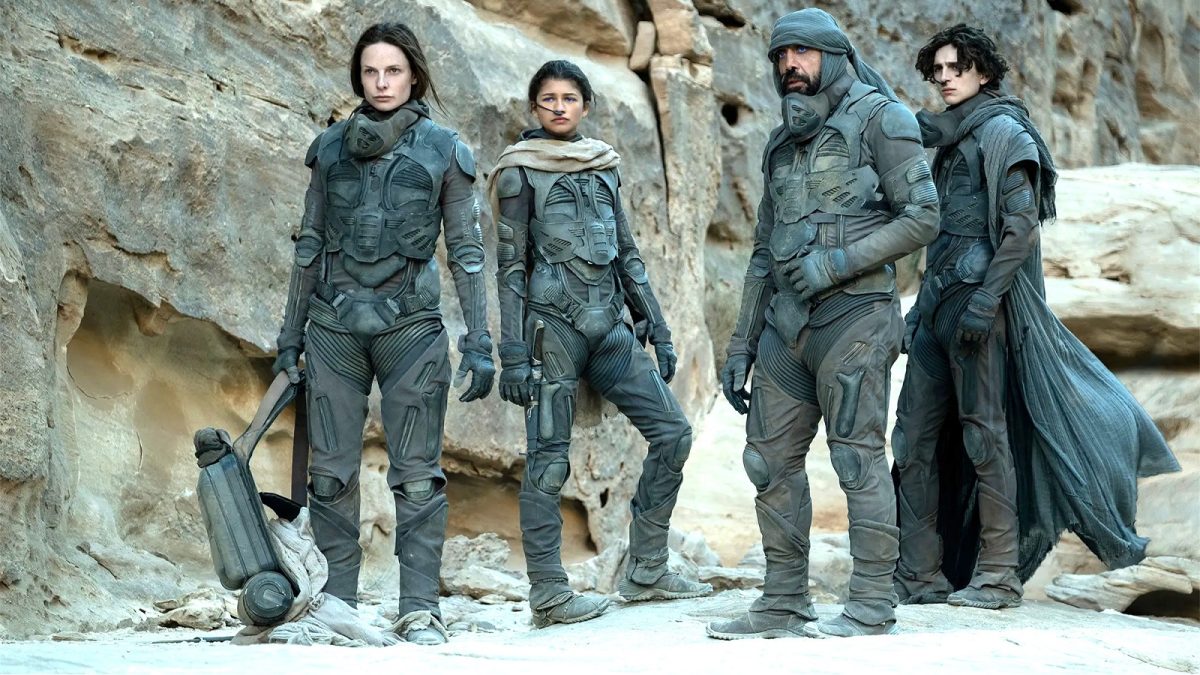Frank Herbert’s 1965 novel has been the subject of several film adaptations, but Denis Villeneuve’s Dune stands out for its conceptual depth. The 2021 film brought the desert planet of Arrakis to life and brilliantly conveyed the scope of the cosmos and intricacies of destiny and human nature as envisioned in the novel to a new generation. Paired with a star-studded cast including Timothée Chalamet, Stellan Skarsgård, Dave Bautista, Zendaya, Chang Chen, Jason Momoa, Javier Bardem, and many more A-listers, Dune has faithfully adapted Herbert’s world into an epic cinematic experience of a lifetime for viewers who may not be bookworms.
Naturally, Dune was a box office success, earning $402 million on a $165 million budget. The epic and grandiose film captivated the audience with its complex political dynamics and philosophical elements, leaving them impatiently anticipating the second half. Dune: Part Two is set to be released on Nov. 3, 2023, which will continue Paul Atreides’ adventure as he seeks retribution against the conspirators who destroyed his family.
But while we wait impatiently for November, there are a plethora of films to get a similar taste of Dune‘s immersive world, thought-provoking themes, eye-catching visuals, and dynamic characters. Here are the 10 best movies like Dune to catch a similar sprawling narrative if you’re missing Dune.
Ex Machina (2015)
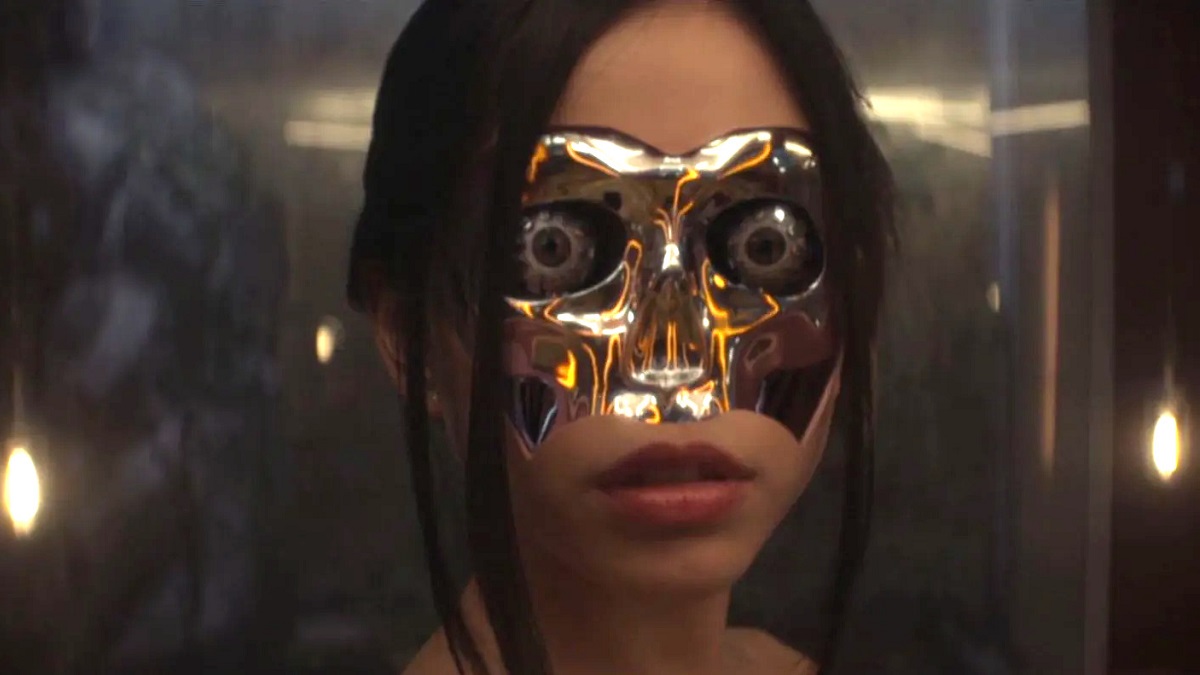
Alex Garland’s Ex Machina and Villeneuve’s Dune have very different overarching locales, plots, and genres, but both films offer fascinating insights into AI, human-technology interaction, and power dynamics. In Ex Machina, a teenage programmer communicates with a sophisticated humanoid AI that is reminiscent of the thinking machines in Dune. Both films include a complex power struggle and examine the moral and philosophical ramifications of creating intelligent beings. In contrast to Ex Machina, which pits AI against people, Dune pits several groups for control of Arrakis’ resources while sharing a mutually beneficial relationship with cutting-edge technology.
Children of Men (2006)
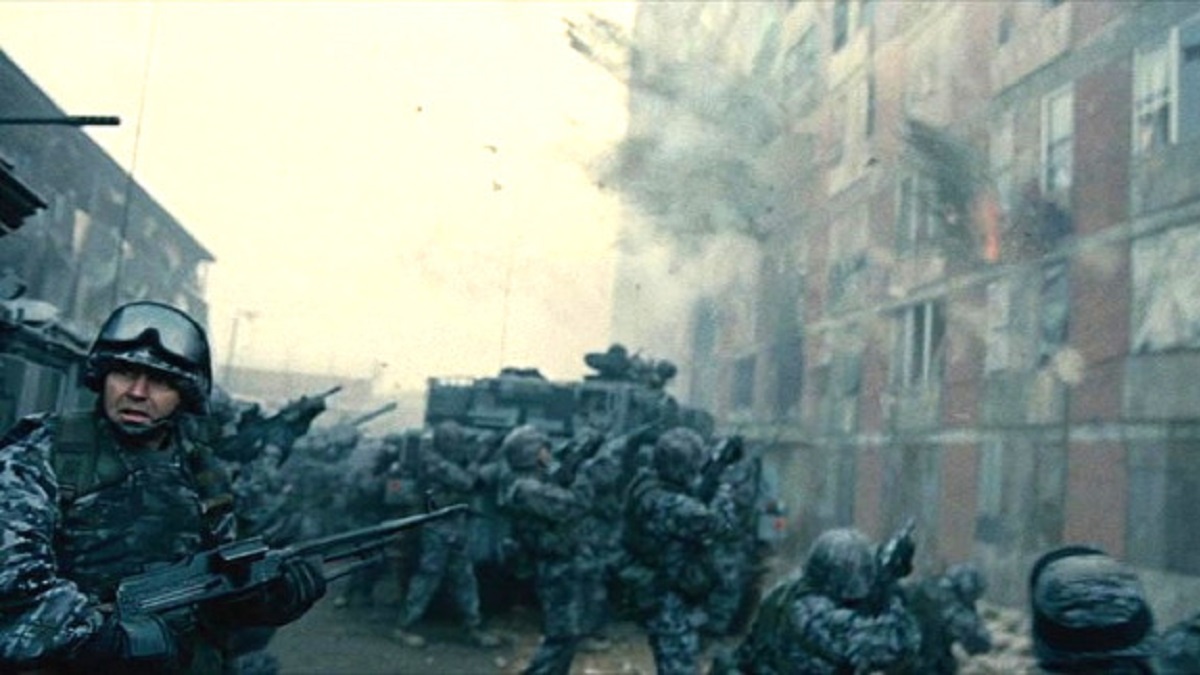
For audiences who are drawn to the dystopian narrative in Dune, Alfonso Cuarón’s Children of Men depicts a near-future world where humanity is facing infertility and the eventual breakdown of society. The exploration of society’s collapse and the struggle for survival is comparable in both films, with the human spirit’s tenacity in the face of social collapse offering a potent critique of modern civilization while simultaneously demonstrating the healing power of hope. Despite their stark differences, both films provide a riveting account of a dystopian society, political intrigue, and the human condition.
Lawrence of Arabia (1962)
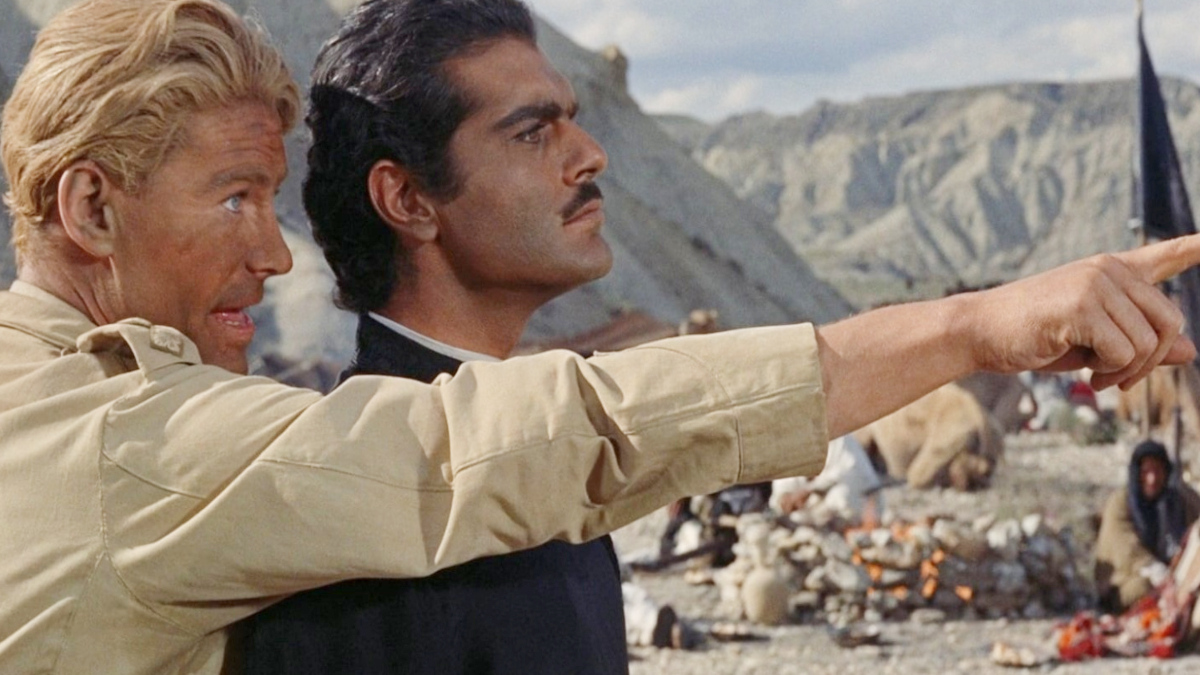
The historical drama Lawrence of Arabia and the science fiction epic Dune both deal with valor, political conflict, and cultural clash, despite taking place in very different settings and eras. They are both renowned for their enormous scope. The historical epic Lawrence of Arabia chronicles T.E. Lawrence’s adventures in the Arabian Peninsula during World War I. Similar to how Paul Atreides navigates a strange planet and must reconcile his own ancestry with his new surroundings, Lawrence, a British officer, becomes deeply ingrained in Arabic society and struggles with feelings of belonging and the complexity of his identity.
Prometheus (2012)

The 2012 science fiction horror Prometheus is set in the late 21st century and focuses on the crew of the titular spaceship as they discover a threat to the human world while searching for the origins of humanity on a distant world. The beginnings of the universe and the enigmatic substance known as spice also play significant roles in Dune. The nature of existence, the origin of life, and the hunt for meaning are all themes that are brought up in both movies. Prometheus is the perfect watch to catch Dune‘s feel in a different futuristic context.
Interstellar (2014)

There is no denying the parallels between Interstellar and Dune‘s settings and existential concerns. Similar to the epic space opera Dune, which is set in an intricate galactic society, Christopher Nolan’s Interstellar is a space travel science fiction movie that is concerned with the survival of humanity. Both films’ core themes revolve around the studies of space, time, environment, human survival, and existence. Interstellar follows a group of astronauts as they set out on a search for a planet outside of our solar system that could support life in order to ensure humanity’s survival. Both films investigate the vastness of the cosmos and the repercussions of exploring the unknown.
Blade Runner 2049 (2017)
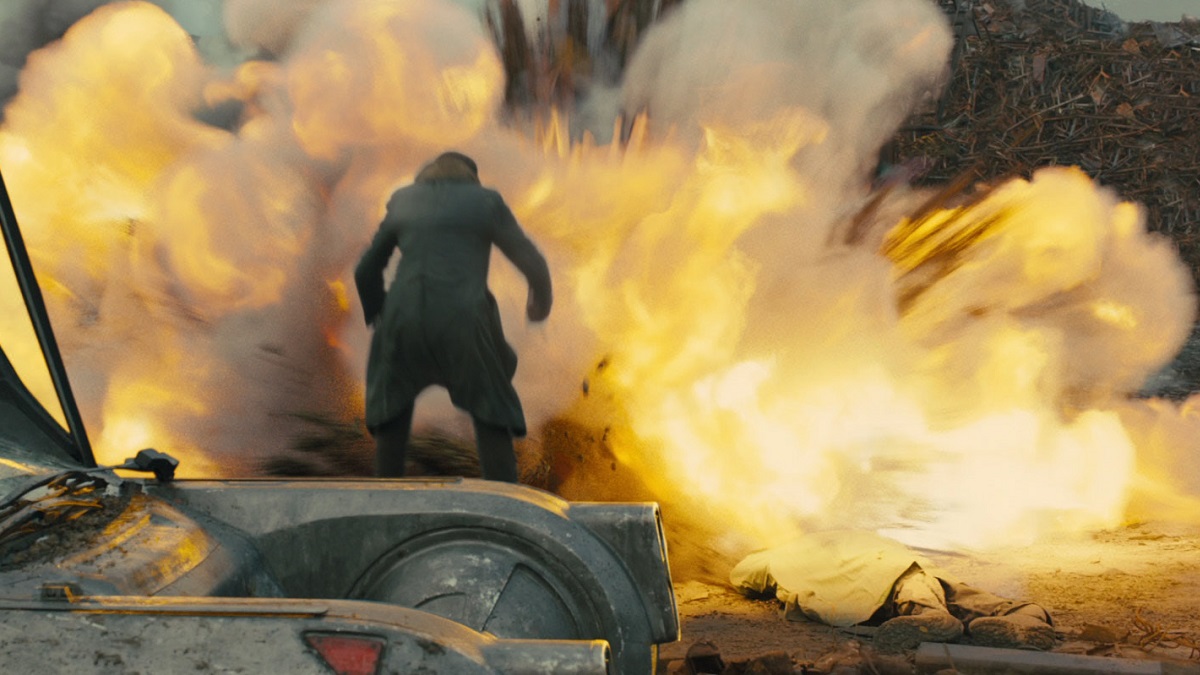
Dune and Blade Runner 2049 both feature ethically convoluted settings where characters must make difficult decisions and deal with the grave consequences of their decisions. Dune examines the moral ramifications of political manipulation and resource exploitation, whereas Blade Runner 2049 explores the ethical ramifications of developing and manipulating artificial intelligence. Given that Blade Runner comes from the same director, viewers will recognize his painstaking attention to detail, gorgeous photography, elaborate production design, and breathtaking visual effects in Blade Runner too. Though Blade Runner is a neo-noir science fiction, it is comparable to Dune in terms of dystopian scenarios, moral ambiguity, and visual artistry.
Ender’s Game (2013)
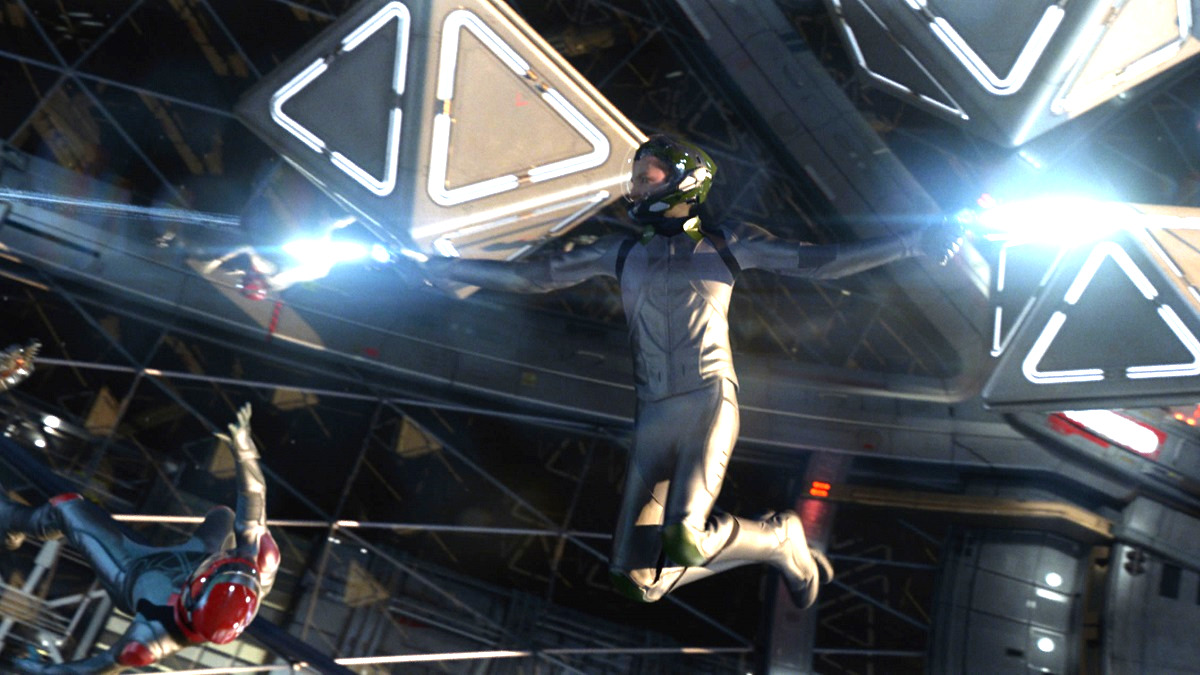
Ender’s Game is a military science-fiction action film based on Orson Scott Card’s 1985 novel. In the film, Ender Wiggin, a young man with exceptional intelligence, is enrolled in a military training program to combat an alien invasion. The film draws similarities to Dune in presenting a coming-of-age narrative featuring a young protagonist with extraordinary abilities, which is Wiggin in Ender’s Game and the young nobleman Paul Atreides in Dune. Dune concentrates on political conflict, while Ender’s Game is set in a similar futuristic world and centers on a future Earth’s desperate military war against an alien race. Though the film is a decade old, it shares enough similarities to remind viewers of Dune every now and then while watching.
Arrival (2016)
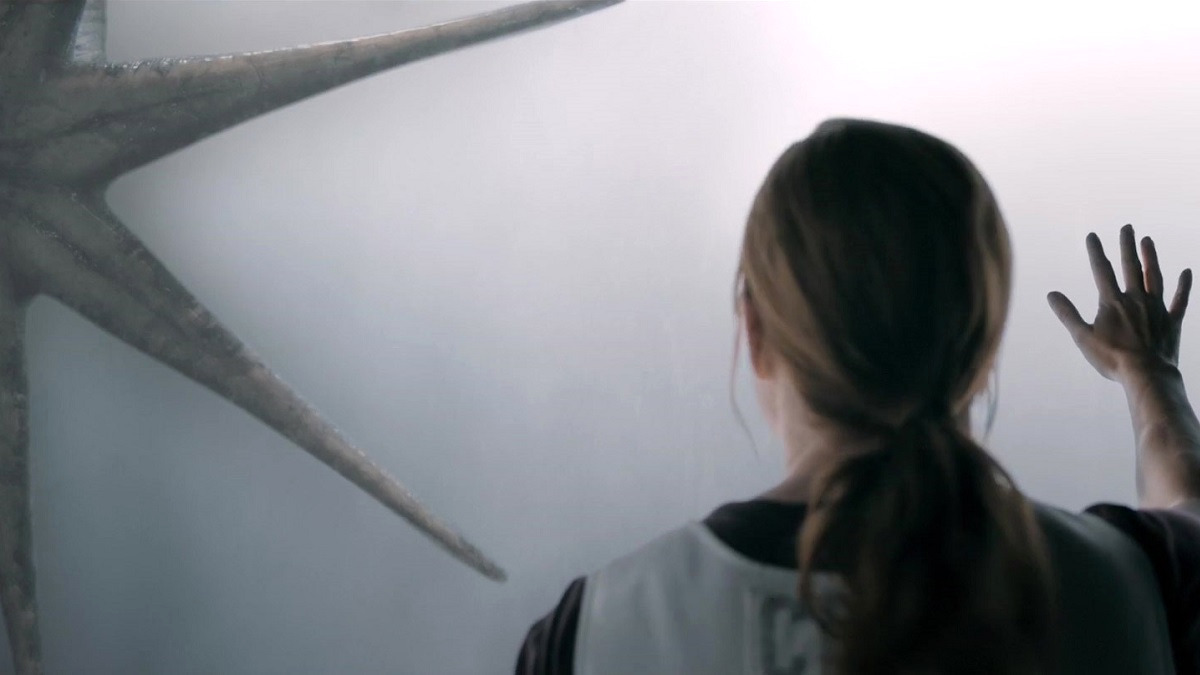
Another one of Villeneuve’s masterpieces, Arrival plays parallel to Dune in various aspects. The two offer comparable sociopolitical intrigue, investigate the subject of the non-linearity of time and altered perception, and recount an initial encounter with an extraterrestrial culture. For all Dune fans who adored the issues highlighted in the movie on fate, free will, and the limits of human understanding, this thought-provoking science fiction film is a must-watch. Similar to the several groups competing for control of Arrakis in Dune, the arrival of the aliens in Arrival sparks international tensions as various governments struggle for dominance and attempt to decipher the visitors’ motives.
The Lord of the Rings: The Fellowship of the Ring (2002)
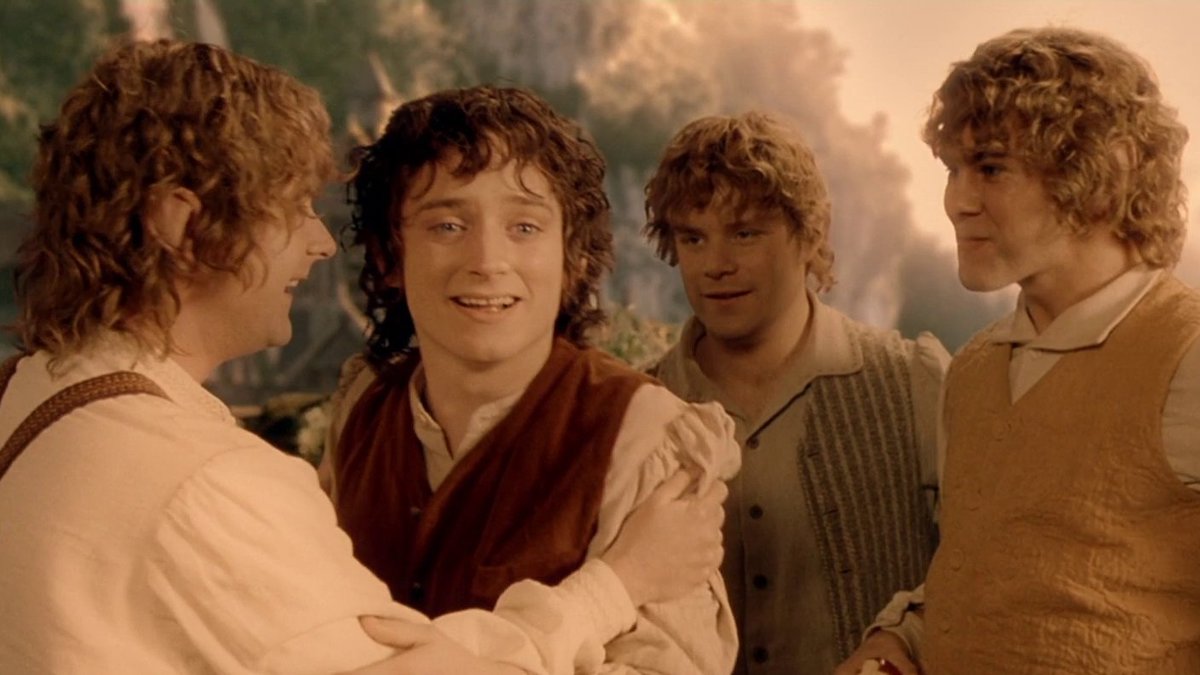
Both Dune and The Fellowship of the Ring have complex mythologies and vast worlds. Viewers are introduced to Middle-earth’s wide and varied landscapes in The Fellowship of the Ring, which is home to a variety of creatures, cultures, and historical periods. The interplanetary society depicted in Dune, on the other hand, has its own governmental structure and set of religious principles. Additionally, there is a similar sense of high-stakes epic adventure between the two. The Fellowship of the Ring also features the best ensemble cast from the 2000s, which will appeal to the fans of Dune‘s ensemble cast.
2001: A Space Odyssey (1968)

Inspired by Arthur C. Clarke’s 1951 short story The Sentinel, 2001: A Space Odyssey follows a voyage by astronauts, scientists, and the sentient supercomputer HAL to Jupiter to study an extraterrestrial monolith. It is a classic of philosophical science fiction that examines the development of human awareness and our position in the universe. Thematic explorations of human growth and metamorphosis, the usage of enigmatic artifacts (black monoliths in Space Odyssey and the spice melange in Dune), and an impression of awe at the expanse of the cosmos are shared by Space Odyssey and Dune. The film’s groundbreaking visual effects and awe-inspiring imagery will ensure viewers an other-worldly experience like Dune.

